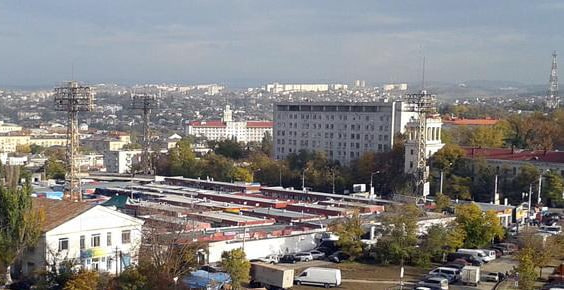On March 28, on the eve of the meeting of the IOC Executive Board, where the issue of responding to Russian aggression will be considered, the statement of the Presidium of the Mejlis of the Crimean Tatar People “On the non-admission of Russian and Belarusian athletes to the 2024 Olympic Games” was made public. The document states that the Olympic Charter, which establishes the basic principles and essential values of Olympism, directly indicates that the goal of Olympism is “the direction of sport for the benefit of the harmonious development of mankind, contributing to the creation of a peaceful society that cares about the preservation of human dignity”.
Sadly, the Mejlis points out, but even in the 21st century, the Olympic Movement, as a unique phenomenon and universal activity based on the values of Olympism, covering all five continents, continues to experience devastating blows from states in which democracy has been trampled on and dictatorial regimes have been established.
In this regard, the Mejlis of the Crimean Tatar People with deep indignation stated the systemic attempts of Russia as an aggressor state, which unleashed a war against sovereign Ukraine in February 2014, as a result of which the Crimea and a number of other territories of Ukraine were occupied, tens of thousands of civilians and military personnel of Ukraine were killed, hundreds of cities, towns and villages, millions of citizens became refugees and internally displaced persons, as aimed at the Russia’s absolute discredit and destruction of the Olympic Movement.
The Mejlis of the Crimean Tatar People noted that the same cynical position in relation to the values and principles of Olympism was taken by the dictatorial regime of Lukashenko, who seized power in Belarus. The Mejlis of the Crimean Tatar People welcomes in a statement the decision of the IOC to ban the National Olympic Committees of Russia and Belarus from participating in the 2024 Olympic Games and other Olympic events.
In a released statement, the Mejlis of Crimean Tatar People strongly disagrees with the decision of the IOC to allow Russian and Belarusian athletes to participate in the 2024 Olympic Games in Paris under a neutral flag. The Mejlis emphasizes that international law defines citizenship as a legal relationship between an individual and a state.
In a situation related to the Russian-Ukrainian war, if a Russian citizen does not take actions directed against this war, does not condemn war crimes committed by Russian troops on the territory of Ukraine, does not oppose the Russian occupation of the Crimea, then his position is considered inseparable from the criminal position of the Kremlin.
Therefore, the admission of Russian athletes in any capacity to the Olympics will mean tacit approval by the IOC of the crimes of the Russian aggressor in Ukraine, including the intensifying persecution and persecution of the indigenous Crimean Tatar People, the Mejlis states. Let us recall that Professor Boris Babin, on behalf of our Association, addressed the Executive Board of the IOC earlier on a similar position.
The Mejlis of the Crimean Tatar People noted that the participation of Russian and Belarusian athletes in the 2024 Olympic Games or at any events held as part of the Olympics will be used by the dictatorial regimes of Russia and Belarus to justify the genocide of Ukrainians and Crimean Tatars, as well as an attempted annexation the territories of Ukraine.
Thus, in a statement, the Presidium of the Mejlis of the Crimean Tatar People calls on the IOC Executive Board to decide on the non-admission of Russian and Belarusian athletes in any capacity to the 2024 Olympic Games and to conduct a thorough check of all participants in the 2024 Olympics regarding their possible support for acts of aggression, attempts to annex territories sovereign states, manifestations of racial discrimination and persecution, including the situation in the occupied Crimea, as clearly violating the Olympic Charter and destroying the core values of Olympism.
ARC immediately informed the IOC bodies, international sports federations and more than a hundred of National Olympic Committees about the statement adopted by the Mejlis.







